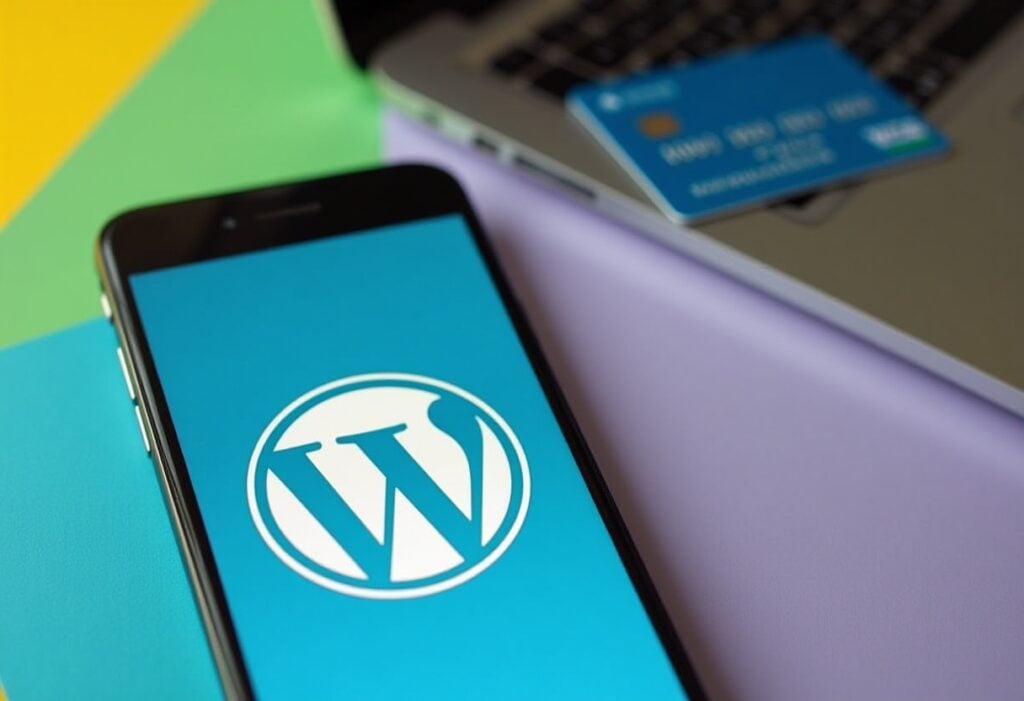For small businesses in the UK, having a well-designed, functional website is a vital part of building brand visibility, engaging customers, and driving sales. A professional website helps establish credibility and allows customers to interact with your business anytime, anywhere. However, many small business owners face the challenge of finding a website builder that’s affordable, easy to use, and offers the right features for their business needs.
In this guide, we’ll review the best website builders available in the UK, discussing their strengths, limitations, and ideal use cases. This will help you make an informed choice, ensuring your website supports your goals as your business grows.
Why Choose a Website Builder?
For small businesses, a website builder offers an accessible way to get online quickly without the high cost of custom web development. Most website builders offer drag-and-drop interfaces, pre-designed templates, and built-in functionalities, allowing non-technical users to create and launch websites in a relatively short time.
Benefits of Using a Website Builder
Benefits of using a website builder include:
- Cost-Effectiveness
- Ease of Use
- Built-in Features
- Responsive Design
Cost-Effective
Website builders are generally more affordable than hiring a web development agency, making them ideal for startups and small businesses on a budget.
Ease of Use
With intuitive interfaces and pre-designed templates, website builders allow users without coding skills to design professional websites.
Built-in Features
Many website builders come with SEO tools, e-commerce options, and integrations, which can help optimise your site for search engines and streamline your operations.
Responsive Design
The best website builders offer mobile-responsive designs, ensuring your site looks good on any device.
However, if you’re looking for advanced customisation and scalability, or if your brand requires a unique digital presence, a custom-built website may be more suitable. Yellowball’s team of designers, developers, and SEO specialists can help create a fully bespoke website that aligns with your business’s unique vision and needs.
Top Website Builders for Small Businesses in the UK
Let’s dive into the best website builders available in the UK, with a breakdown of their features, pricing, and suitability for different types of businesses.
1. Wix
Overview: Wix is a popular website builder known for its ease of use, variety of templates, and robust drag-and-drop editor. With hundreds of customisable templates and integrated SEO tools, it’s a solid choice for small businesses looking to get online quickly.
Key Features:
- Drag-and-drop editor with over 800 pre-designed templates.
- SEO Wis tool to help users optimise their websites for search engines.
- Built-in e-commerce functionality with support for online stores.
- App Market with additional integrations and features.
Pros:
- Highly customisable and beginner friendly.
- Wide range of templates across various industries.
- Integrated SEO and marketing tools to help grow traffic.
Cons:
- Limited ability to switch templates once the site is live.
- Some advanced features are only available on higher-tier plans.
Best for: Small businesses needing a visually appealing, customisable website without the need for extensive technical skills.
2. Squarespace
Overview: Squarespace is known for its sleek, modern designs and is particularly popular with creative businesses like photographers, designers, and restaurants. With an emphasis on aesthetics, Squarespace provides polished, professional templates that showcase products and services beautifully.
Key Features:
- Elegant, high-quality templates optimised for visual storytelling.
- Built-in e-commerce tools and inventory management.
- Blogging platform with SEO and social media integrations.
- Analytics and metrics for tracking site performance.
Pros:
- Visually stunning templates with a focus on aesthetics.
- Excellent e-commerce tools for product-based businesses.
- Good range of built-in features with minimal need for external apps.
Cons:
- Limited flexibility in template customisation.
- Can be more challenging to use for those without design experience.
Best for: Creative businesses, such as photographers, artists, and boutique retailers, that want a stylish, high-quality online presence.
3. WordPress.com
Overview: WordPress.com offers a simplified version of the WordPress platform, designed for users without coding knowledge. It’s versatile, powerful, and supports a range of website types, from blogs to business sites to online stores.
Key Features:
- Customisable themes and templates with integrated blogging capabilities.
- E-commerce options available with higher-tier plans.
- Built-in SEO tools, social sharing, and analytics.
- Access to WordPress plugins for added functionality.
Pros:
- Strong blogging and content management capabilities.
- Flexibility to expand with additional features through plugins.
- SEO-friendly with built-in tools and mobile-responsive designs.
Cons:
- Can have a learning curve for beginners.
- Limited customisation compared to the self-hosted WordPress.org version.
Best for: Content-driven websites, blogs, and small businesses planning to scale their online presence over time.
Find out more in our guide to WordPress vs. Wix vs. Squarespace.
4. Shopify
Overview: Shopify is a website builder specifically designed for e-commerce. With its extensive features and integrations, Shopify is ideal for small businesses looking to build an online store and manage sales, inventory, and customer relationships.
Key Features:
- E-commerce tools for managing products, payments, shipping, and taxes.
- Access to a variety of apps for expanded functionality.
- Mobile-responsive themes optimised for conversions.
- In-depth analytics and reporting for tracking sales.
Pros:
- Comprehensive e-commerce platform with powerful tools.
- Secure payment gateway and various payment options.
- 24/7 customer support and dedicated e-commerce resources.
Cons:
- Monthly fees can add up, especially with add-on apps.
- Limited flexibility outside of e-commerce functionality.
Best for: Small businesses focused on e-commerce, particularly those that require a complete storefront solution.
5. Weebly
Overview: Weebly is an easy-to-use website builder offering drag-and-drop functionality, making it ideal for beginners. Acquired by Square, Weebly now has stronger e-commerce features, making it suitable for small businesses looking to sell online.
Key Features:
- Simple drag-and-drop editor with a variety of templates.
- E-commerce features, including payment processing via Square.
- Integrated SEO tools and social media sharing options.
- Mobile-responsive designs with easy customisation.
Pros:
- Beginner-friendly, with a straightforward setup process.
- Low-cost options for small businesses on a budget.
- Suitable for smaller e-commerce sites and service-based businesses.
Cons:
- Limited design flexibility compared to other builders.
- Some advanced features are only available in higher-tier plans.
Best for: Small businesses needing a simple, affordable website with basic e-commerce functionality.
6. GoDaddy Website Builder
Overview: GoDaddy’s website builder is geared toward simplicity and speed, with easy setup and customisable templates. It’s especially popular with businesses looking for a fast, no-fuss way to get online.
Key Features:
- Drag-and-drop editor with a variety of industry-specific templates.
- Integrated SEO, email marketing, and social media tools.
- E-commerce capabilities with product listings and payment integration.
- 24/7 customer support for troubleshooting.
Pros:
- Quick setup and beginner friendly.
- Good range of features, including marketing and SEO tools.
- Reliable customer support and hosting from GoDaddy.
Cons:
- Limited design flexibility and customisation options.
- Some features may feel basic compared to other builders.
Best for: Small businesses needing a quick, hassle-free solution to get online.
What to Look for in a Website Builder
When selecting a website builder, consider the following factors to ensure it meets your business needs:
- Ease of Use: Choose a builder with a user-friendly interface, especially if you lack technical expertise.
- Template Quality: High-quality, customisable templates are essential for creating a professional-looking site.
- Mobile Responsiveness: Ensure the builder offers mobile-responsive designs, as mobile browsing is essential for most businesses.
- SEO Features: Good SEO tools will help your site rank higher in search results, driving more organic traffic.
- E-commerce Capabilities: If you plan to sell products online, ensure the builder offers robust e-commerce tools, including payment processing and inventory management.
- Scalability: Choose a builder that allows you to expand your site as your business grows.
- Customer Support: Reliable support is invaluable, especially if you encounter technical issues.
Why Choose a Custom Website?
While website builders are convenient and cost-effective for small businesses, there are instances when a custom website may be more beneficial:
Unique Branding
If you want a distinct digital presence that truly reflects your brand, a custom website designed by a professional agency like Yellowball can offer complete customisation and originality.
Advanced Functionality
For businesses needing complex features or integration with specific software, custom development can ensure your site meets all requirements.
Scalability
As your business grows, a custom website can adapt more readily to new needs, such as additional pages, e-commerce options, or custom databases.
Enhanced SEO
Custom sites can be optimised specifically for SEO, ensuring better performance in search engines.
Find out more about costs of the various options in our guide: How much does a website cost in the UK?
At Yellowball, we work closely with clients to create, host, and maintain bespoke websites that align with their goals, delivering a high-quality online presence that drives growth and engagement.
Leverage Yellowball’s Expertise in WordPress, WooCommerce, and Laravel
Choosing the right website builder is a critical step in creating a powerful online presence, but for businesses looking to go beyond the basics, a custom-built site offers unparalleled flexibility and functionality.
At Yellowball, a boutique agency specialising in bespoke web design, development, SEO, and paid advertising, we know that an effective website is built on the right foundation. Our expertise in WordPress, WooCommerce, and Laravel enables us to craft bespoke high-performance websites tailored precisely to the needs of your business.
With years of experience, countless success stories from world-leading businesses, and a portfolio of award-winning projects, Yellowball’s expert team is here to build a digital presence that sets you apart. Contact us today to explore how our custom solutions can transform your business online.
Read more: How to create a business website










